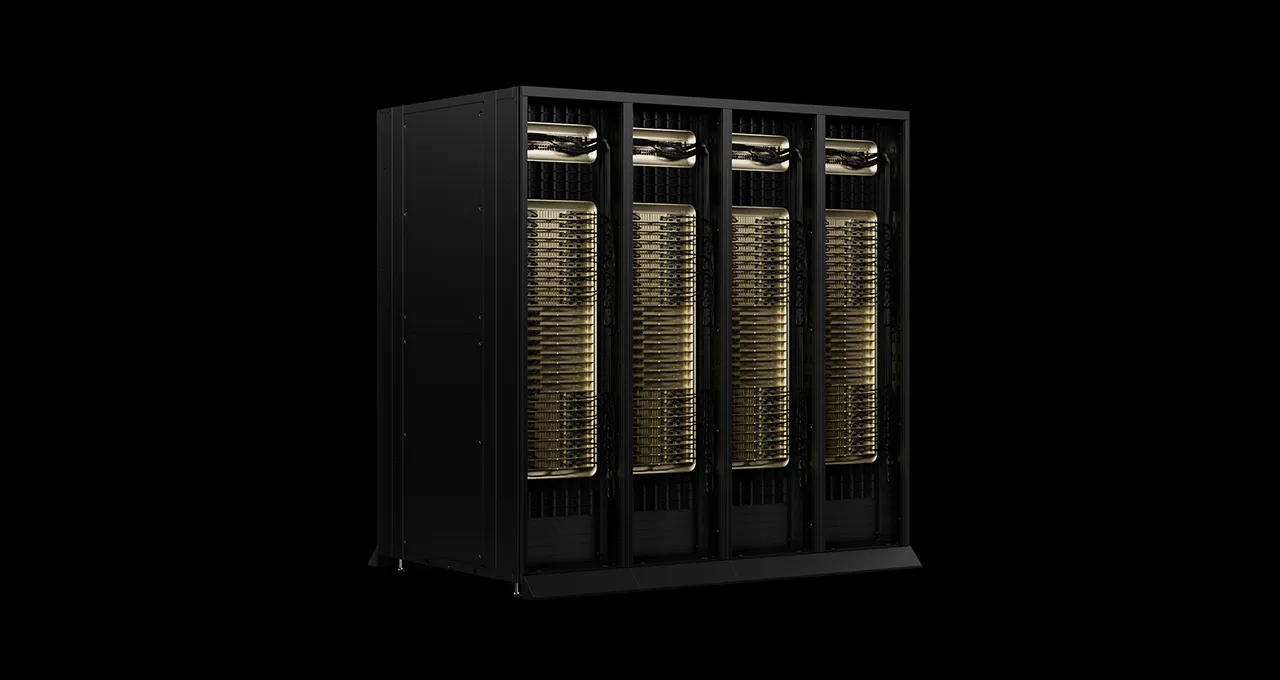Nvidia just turbocharged its AI chips. The new Blackwell Ultra platform packs enough computing muscle to make AI reason, plan, and solve complex problems without calling for help.
The star of the show, the GB300 NVL72, connects 72 Blackwell Ultra GPUs with 36 Arm-based Grace CPUs. This monster performs 1.5 times better than its predecessor. Picture a supercomputer that fits in a rack instead of filling a warehouse.
For companies who prefer their computing power in smaller packages, Nvidia offers the HGX B300 NVL16. This system runs AI models 11 times faster than the previous generation. It processes data so quickly that it makes traditional computers look like they're solving math problems with an abacus.
Nvidia designed these chips specifically for "reasoning AI" – systems that can break down complex problems into steps and explore different solutions. Think of it as giving AI a logical brain instead of just a really good memory.
The system needs serious networking power to shuttle all that data around. Nvidia's new chips work with their Spectrum-X Ethernet and Quantum-X800 InfiniBand platforms, pushing 800 gigabits per second for each GPU. That's enough bandwidth to stream every movie ever made while still having room for cat videos.
Tech giants aren't waiting to get their hands on these chips. AWS, Google Cloud, Microsoft Azure, and Oracle Cloud Infrastructure will offer Blackwell Ultra-powered services. Meanwhile, manufacturers like Dell, HP, and Lenovo will build servers around them.
Nvidia also unveiled Dynamo, new software that helps these chips run more efficiently. It's like a traffic controller for AI, making sure all those computing resources don't sit idle while expensive models run.
The company expects partners to ship Blackwell Ultra products in the second half of 2025. Jensen Huang, Nvidia's CEO, calls it a "single versatile platform" for all kinds of AI work. He probably means it will handle everything from training new AI models to helping them figure out why humans find cat videos so fascinating.
Why this matters:
- Nvidia just made AI reasoning practical at scale. When AI can break down complex problems and explore multiple solutions, it moves from being a smart pattern matcher to something closer to an actual problem solver.
- The race for AI infrastructure just entered a new phase. With these chips, companies can build AI systems that don't just respond to questions but actively work through problems – though hopefully not the kind that lead to Skynet.
Read on, my dear:
Nvidia: NVIDIA Blackwell Ultra AI Factory Platform Paves Way for Age of AI Reasoning









